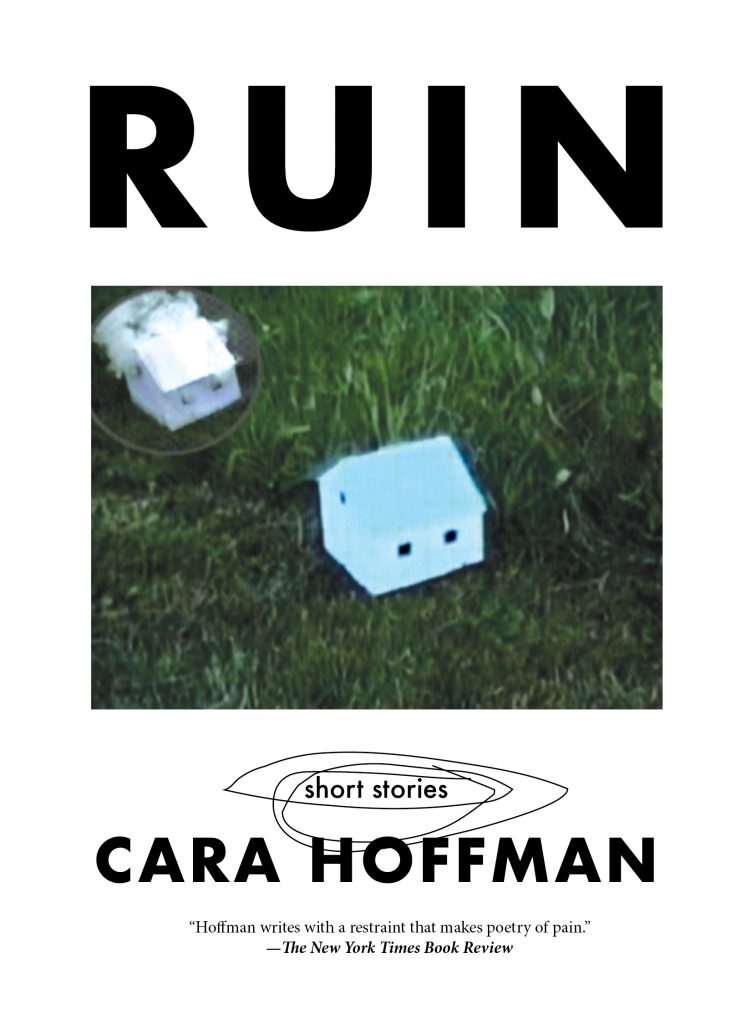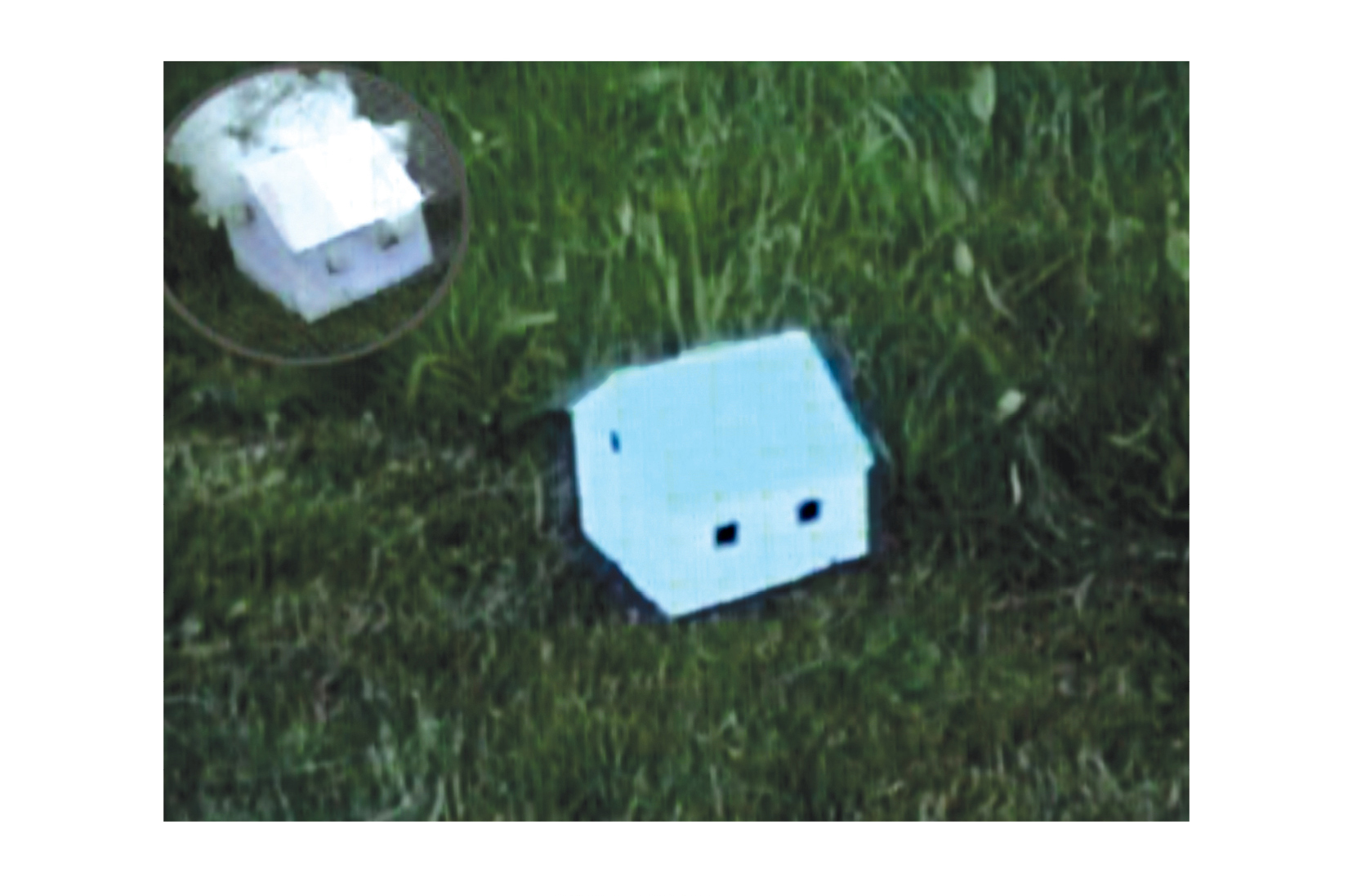By Ranbir Sidhu
LARB
July 21st, 2022
IN THE TITLE STORY of Cara Hoffman’s RUIN, a collection of partially linked tales, a painter, wandering the streets of a desolate, near-apocalyptic Lower East Side, chances upon a lanky, unkempt stranger buying an aquarium at a discount store. He “had the occupied gaze of someone I would like to fuck or photograph,” Hoffman writes. The narrator does both, first at her studio and then at his apartment, located on the top floor of a devastated five-story walk-up. He is some kind of professor, studying the venom of a particularly dangerous toad. She photographs him naked, holding one of his toads in a gloved hand. Back at her studio, her friend Henry calls and plays an almost hour-long droning loop of voices over the phone. She mostly ignores it, going about her business, and later Henry arrives with breakfast, and together they study the photographs she took of the professor.
There’s a moment in many of these stories when the familiar falls away, or some version of an apocalyptic familiar, and we are allowed to drop into a world that is as untethered as it is resonant. It feels like a fall into a very contemporary moment. In the title story, as we spin deeper into a Manhattan night, the narrator wanders from a diner to Lincoln Center, and back to 14th Street, where she can “smell smoke on the air from something vast and nearly extinguished.” The latter could be an image of our world as Hoffman’s conceives it. In “The Apiarist,” which depicts a world in which political prisoners cultivate honey for an unknown regime, the protagonist bares her breasts for the enjoyment of passing helicopter gunships; later, swimming with a fellow prisoner, she notices “the architecture of his legs, of his back as he crested to breathe, as he moved through the veil of green, through the bands of gold light, close enough for her to touch.” There is no touch, just her name, as she discovers, written in the algae of the pool. Such signals, coded messages sent amid the rubble of war, become moments of connection, secret handshakes among orphans. People do not find themselves in these stories: they are figures lost in a crumbling landscape, staring clear-eyed at the widening collapse.
Reading these stories in the shadow of Putin’s war in Ukraine, and the real, if nominal, threat of thermonuclear war, it’s difficult not to feel the terror of the bizarre present moment. In “Retouch/Switch,” the narrator, left literally speechless when friends start using the phrase “on brand,” finally flees an America marked by the “tyranny of their camera-ready faces.” Hoffman draws a link between this American empire of the image and the crumbling, or long since eviscerated, American democracy lying behind the facade. This is an America in ruins — its natural state, given its history and its present, these stories seem to claim. And it is the American obsession with image, with surface over inner life, that has brought us blindly to the edge of catastrophe.
In late March, the fourth week of the current war in Ukraine, as I write this, there is a non-zero chance that, before this review is published, the world we know, or think we know, will cease to exist — indeed, that our human world, our thousands of years of built civilization, will be gone. A year ago, I might have written that sentence glibly, throwing it in for pure sensationalism. Writing it today, the possibility still feels distant, but no longer totally unlikely. What I do know for certain is that the future we think we know, or the future we imagined for ourselves — and the world — as children, is gone. The backslapping congratulations at the recent UN Climate Change Conference in Glasgow, where world leaders guaranteed a future of catastrophic global heating under the false guise of tackling the problem, makes that a near certainty. We are all stumbling toward a dystopia born of our own blindness, failure, and inability to work collectively in the face of global threat.
The stories in RUIN contemplate our various dystopias, worlds riven by the slow-motion chaos of climate collapse or political unraveling, by the late-term effects of a series of communal failures. But it is not the chaos or loss that is Hoffman’s subject. As in her previous novel Running (2017), set amid the runaways and addicts of 1980s Athens, what interests the author are the bonds we form, genuine if sometimes fleeting, and the emotional alliances that are the only sure paths out of our nightmares. In “Strike Anywhere,” a young child awaiting the return of his paratrooper father writes the man’s name in huge letters in gunpowder and lights it when his father returns. Inhaling the pungent odor of sulfur, the father “takes deep breaths and holds them, and he whispers in English, the same unintelligible words over and over, breathing and holding his breath. Breathing and holding his son’s small body to his chest.” The inhaling of sulfur, image of a world gone awry, is transformed into an act of familial love.







